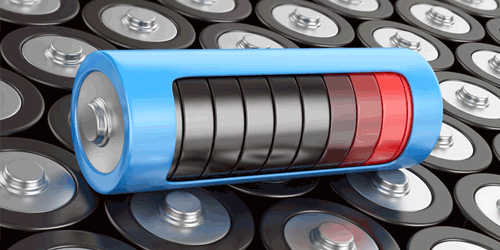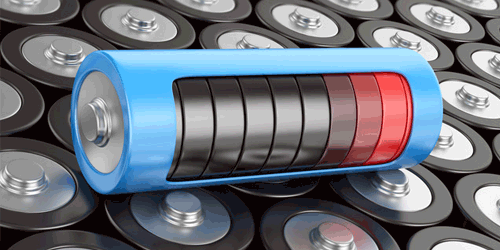Speeding Up Battery Charging with Quantum Physics
Quantum-based technologies offer many advantages over their classical counterparts, such as speeding up certain computations with the help of entangled qubit states. Now, Kavan Modi from Monash University in Australia and colleagues have added another perk to “going quantum”: faster battery charging. The team considered a model for a nanoscale battery with quantized energy states. They found that the charging time can be reduced if multiple copies of this quantum battery interact with each other, but that, surprisingly, it’s not necessary that the battery states be entangled.
The transfer of energy into and out of a battery obeys certain thermodynamic bounds. However, these bounds may be altered if the battery is so small as to have quantized energy transitions between internal states. Recent studies have shown that more power can be extracted from a quantum battery when several copies of the battery are placed together and allowed to interact. Modi and his collaborators looked at the reverse process—charging quantum batteries.
The team imagined several identical quantum batteries, each being transferred from an initial low-energy state to a higher-energy (charged) state by the work of some external field. Previous research on so-called “quantum speed limits” has found that the time needed to go from initial to final quantum states can be shortened when different subsystems—batteries in this case—interact with each other. This interaction could, for example, try to align the spin states of nearby batteries, but it wouldn’t necessarily need to entangle them. In a more generic case, the team showed that N quantum batteries in a statistical mixture of nonentangled states can be charged N times faster with an interactive as opposed to an independent charging method.
This research is published in Physical Review Letters.
–Michael Schirber
Michael Schirber is a Corresponding Editor for Physics based in Lyon, France.





